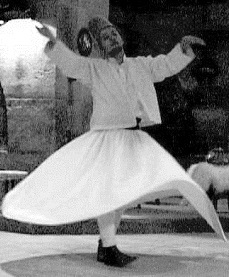The Eighteen Dollar Doctor
My friend Norm from the downtown jewelry district in New York City told me the story of Samuel T. Getlin, a 90-year-old osteopathic physician practicing in Trenton, New Jersey thirty years ago, about the time that many cities in New Jersey were becoming run-down and filled with ghettos.
Norm back then was experiencing some mild gout pain in his wrist and a friend recommended Dr. Getlin. He told Norm that Getlin had unusual office hours - he only took patients from midnight to noon and that in order to get an appointment Norm would have to write down his problem on a small slip of paper and mail it to the doctor enclosing a self-addressed stamped envelope. The doctor in return would write back with a date and time for his appointment.
Dr. Getlin never prescribed drugs except perhaps for extreme pain. For Norm's treatment he suggested a battery of vitamins, a diet change, and the following unorthodox physical therapy: during his waking hours, once an hour, Norm was to get up and dance around like a whirling dervish for a minute or so.
The hourly dance distraction caused a profound change in Norm's outlook on life. His wrist pain went away and never returned. It might have been the vitamins and new diet, but Norm believes it was because the dancing made him feel less stressful.
I should mention that the doctor charged Norm eighteen dollars for the visit. He charged everyone eighteen dollars. Those of my readers who are Jewish will recognize the symbolism behind the number eighteen. The Hebrew word for life is Chai, and in the Hebrew alphabet the letters making up the word add up to 18. (1)
Norm was informed by friends years later, when Dr Getlin was 98-years-old, a couple of young thugs came to his office one night looking for drugs. Dr. Getlin told them that they sure picked the wrong doctor, he had no drugs on the premises. Nevertheless, they ransacked the place and beat him mercilessly.
Although he did not die that day, he never practiced medicine again.
ENDNOTES
(1):
Wikipedia, Chai (symbol)
In Hebrew, the related word chaya means "living thing" or "animal", and is derived from the Hebrew word chai (חי), meaning "life".
Jews often give gifts and donations in multiples of 18, which is called "giving chai". Mailings from Jewish charities usually suggest the amounts to give in multiples of chai (18, 36, 54, dollars, etc.) rather than the usual multiples of 25 or 100.


